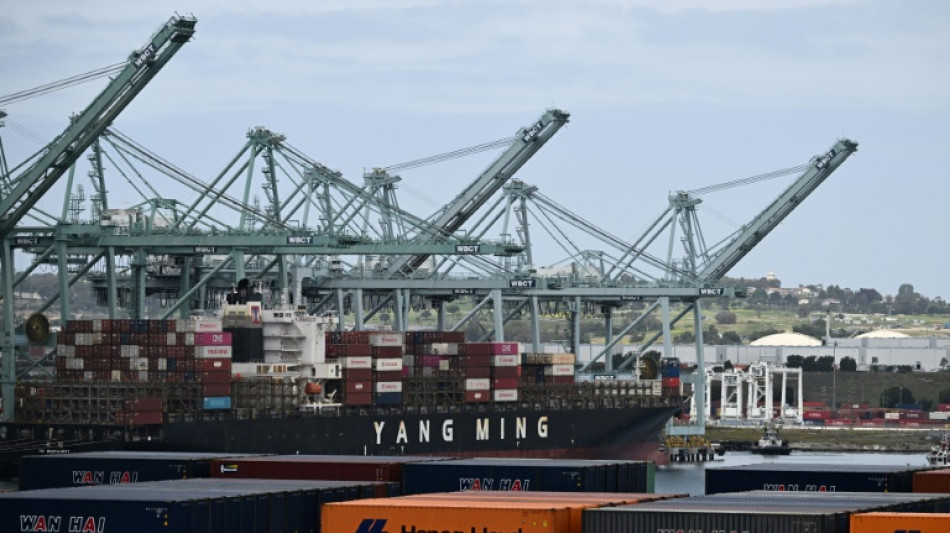
CMSC
-0.0618


The US economy unexpectedly contracted in the first three months of this year, according to fresh data published Wednesday, due largely to a surge in imports ahead of the introduction of sweeping tariffs by President Donald Trump.
The gross domestic product of the world's largest economy decreased at an annual rate of 0.3 percent in the first quarter, after growing 2.4 percent in the final months of 2024, according to an estimate from the US Commerce Department.
Wednesday's data was sharply below the market consensus estimate of 0.4 percent growth, according to Briefing.com.
"The downturn in real GDP in the first quarter reflected an upturn in imports, a deceleration in consumer spending, and a downturn in government spending," the Commerce Department said in a statement.
The figures were published on the 101st day since Trump's return to office on January 20.
In that time, he has announced several rounds of tariffs, laying out plans in March to impose sweeping levies on top trading partners from early April in a bid to reset US trade relations.
The introduction of those tariffs sparked a selloff in financial markets, sending volatility surging to levels not seen since the Covid-19 pandemic and spooking investors.
"Usually, government policy doesn't change that much, particularly not in the first 100 days of a presidency," George Washington University economics professor Tara Sinclair told AFP before the data was published. "But this one's different."
"I think it's pretty clear that there were dramatic policy changes that are directly weakening the economy," she said.
Following April's dramatic market movement, the Trump administration announced a 90-day pause to the higher tariffs for dozens of countries to allow for trade talks, while maintaining a baseline 10 percent rate for most countries.
It also announced sector-specific measures on steel, aluminum and automobiles and parts not made in the United States, and new sweeping tariffs totalling 145 percent on China.
Beijing responded with its own steep, targeted duties against US goods.
- 'Direct response' to Trump -
The US economy grew 2.8 percent last year, according to the Commerce Department.
Heading into the new year, analysts had widely expected growth to cool, but to remain at around two percent in 2025.
Since Trump's return to office, and the introduction of new tariffs, many analysts have sharply cut their growth outlook.
Imports have a negative effect on growth, and counteract the positive effects of exports in the GDP calculations.
"This spike in imports, that's coming directly from people trying to get ahead of tariffs," said Sinclair from George Washington University. "And that is in direct response to the policies of this president."
The drop in imports was "partly offset by increases in investment, consumer spending, and exports," the Commerce Department said.
C.Smith--ThChM